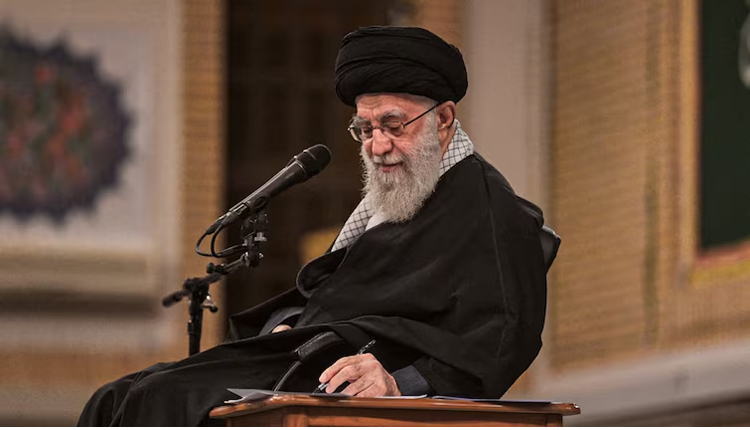New Delhi: India has issued a stern response to comments made by Iran’s Supreme Leader Ayatollah Ali Khamenei, who on Monday accused India of persecuting its Muslim population. Khamenei’s remarks came as part of a broader message, in which he also highlighted the plight of Muslims in Gaza and Myanmar, calling on the global Islamic community to unite.
In his post on the social media platform X (formerly Twitter), Khamenei referred to what he described as the “enemies of Islam” and urged Muslims worldwide to be conscious of the oppression faced by their fellow believers. “The enemies of Islam have always sought to make us indifferent to our common identity as the Islamic Ummah. If we are unaware of the suffering of a Muslim in Myanmar, Gaza, India or any other place, we cannot consider ourselves Muslims,” he said.
India’s Foreign Ministry was quick to reject the allegations, labelling Khamenei’s comments as “misinformed and unacceptable.” In a strongly worded statement, the Ministry responded: “We strongly condemn the comments made by the Supreme Leader of Iran about minorities in India. These are based on misinformation and are unacceptable. Countries commenting on minorities are advised to check their own record before making any comments about others.”
India’s rebuke also touched upon Iran’s internal issues, hinting at the country’s ongoing struggles with human rights concerns, particularly with respect to minority Sunni Muslims and the rights of women. Critics have long accused Iran of mistreating its Sunni minority, as well as imposing harsh restrictions on women.
Meanwhile, Khamenei’s call for solidarity extended beyond India, as he urged Muslims to stand in support of the oppressed people of Gaza and Palestine. In another post on X, he stated: “Today it is definitely our duty to support the oppressed people of Gaza and Palestine. Whoever neglects this duty, Allah will definitely interrogate him.”
The exchange has escalated tensions between India and Iran, two nations that historically share diplomatic and economic ties. However, India’s firm response indicates its unwillingness to accept what it considers unfounded allegations regarding its treatment of minorities. This development could lead to further diplomatic engagement as both nations seek to address the fallout from Khamenei’s remarks.



Comments are closed.